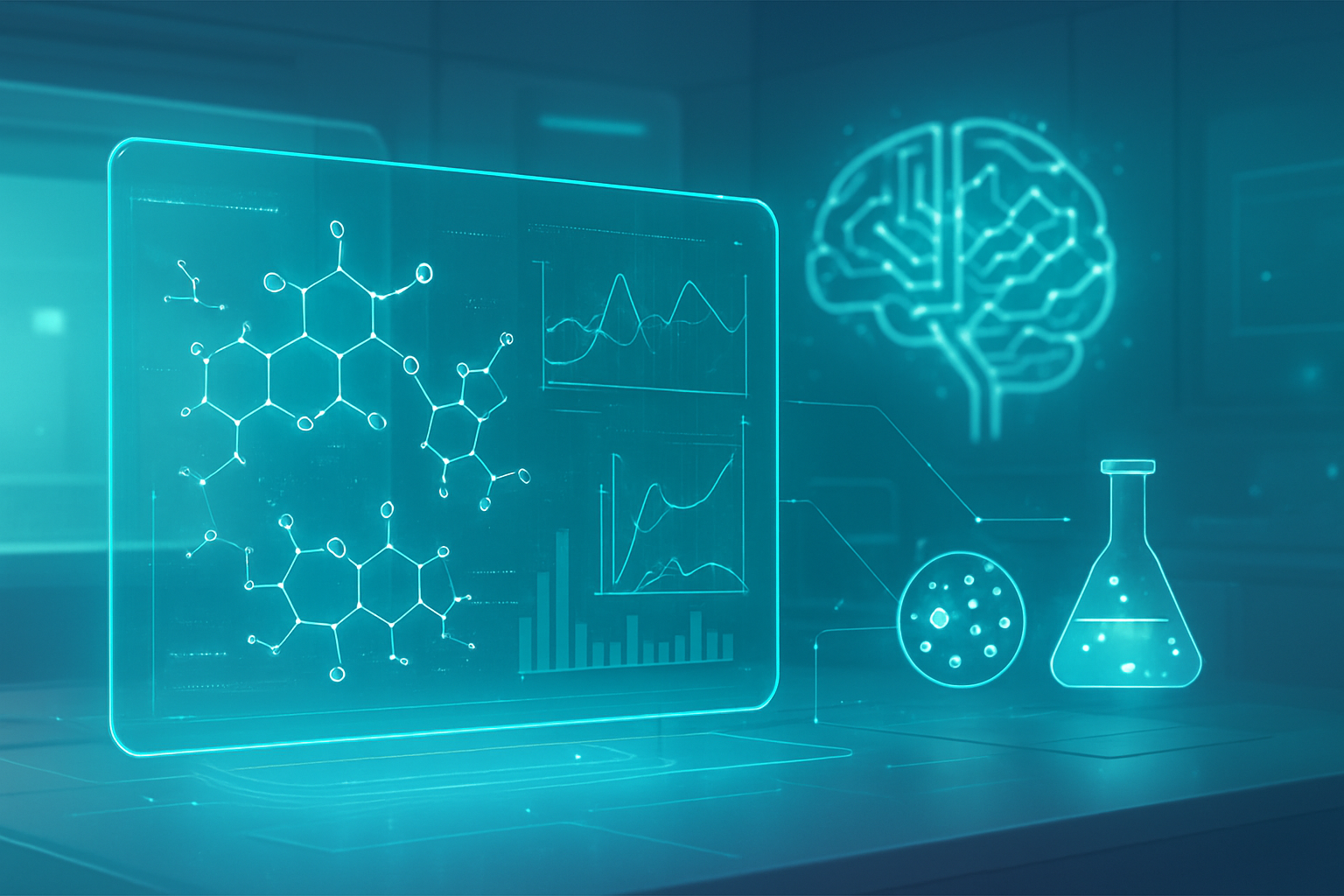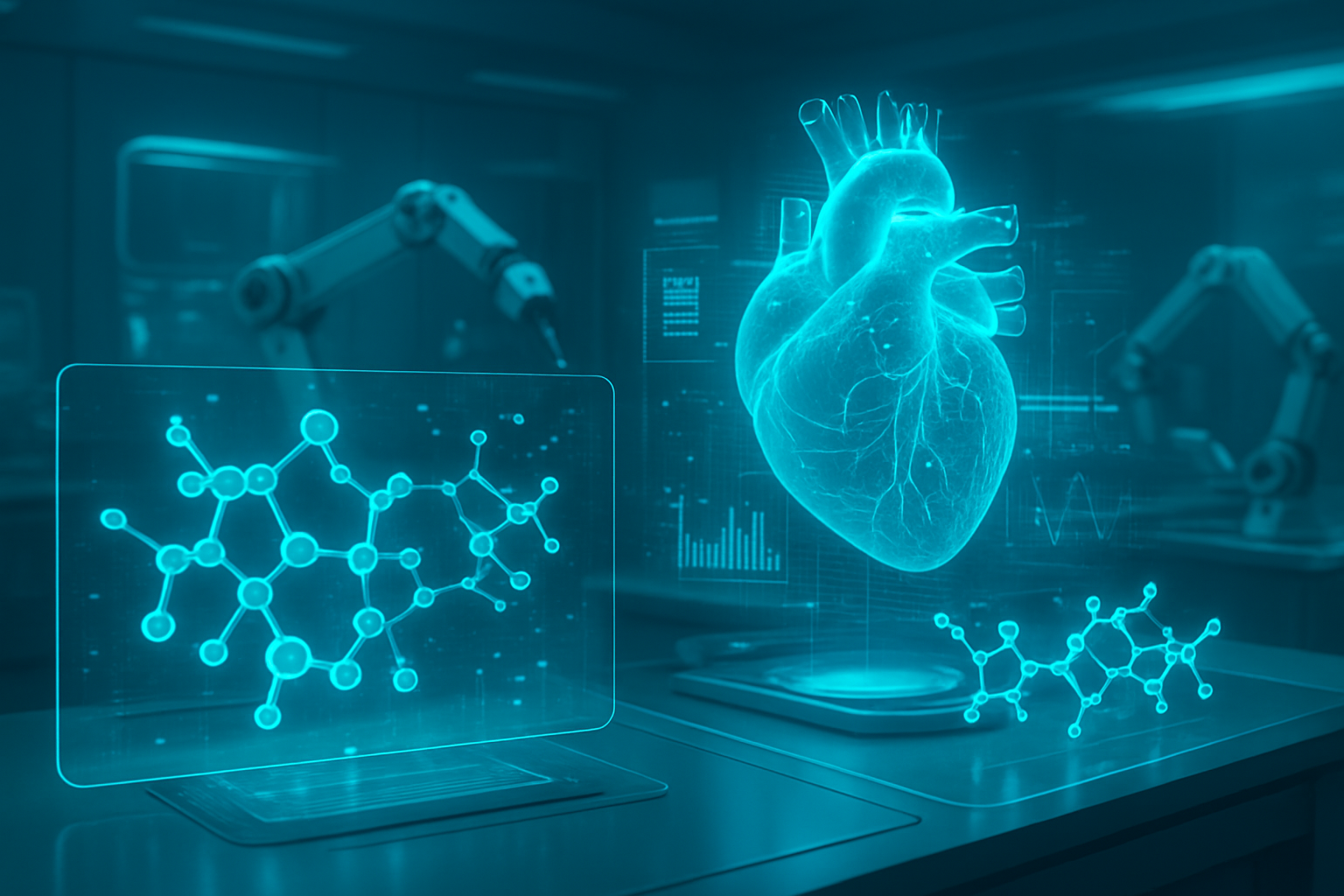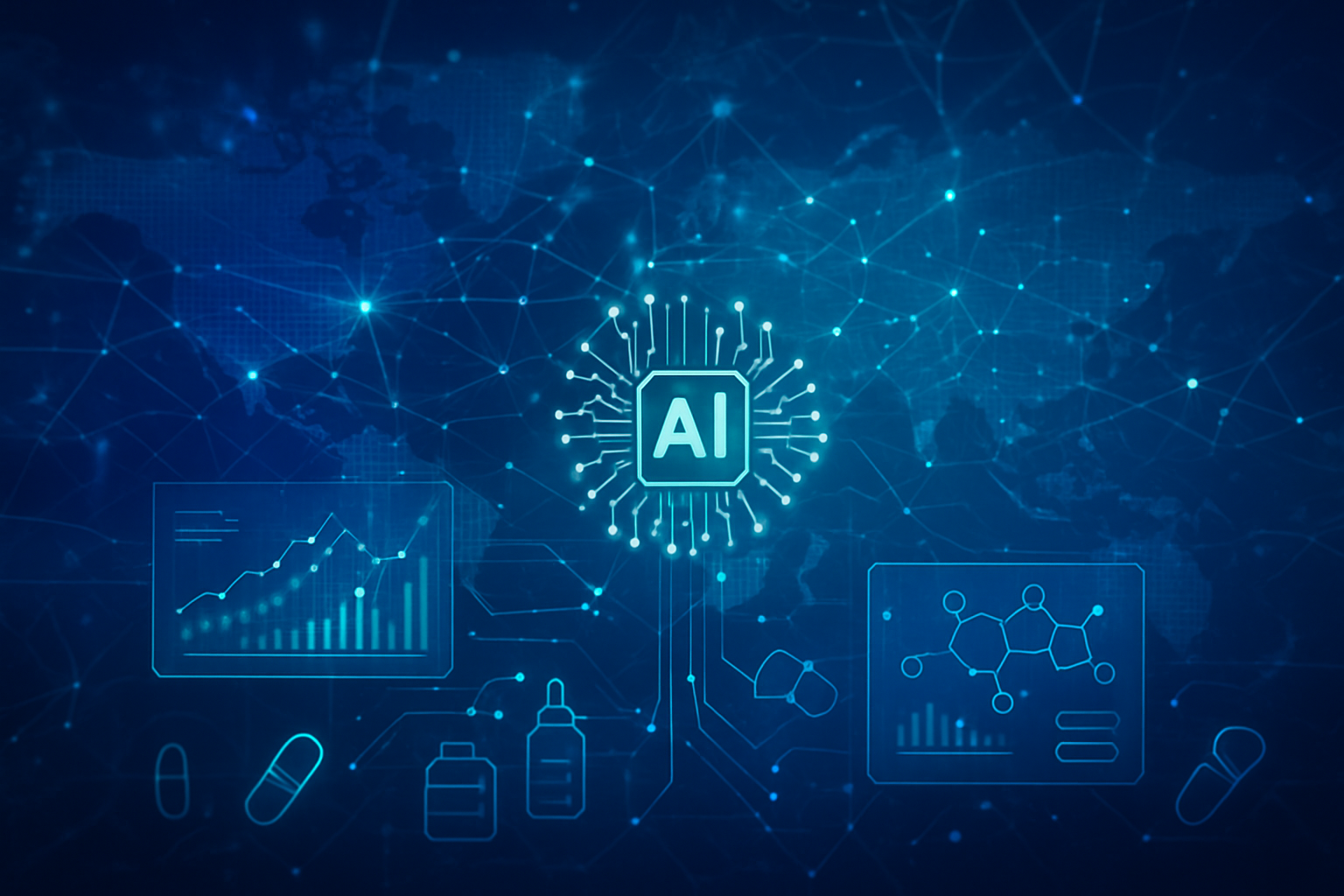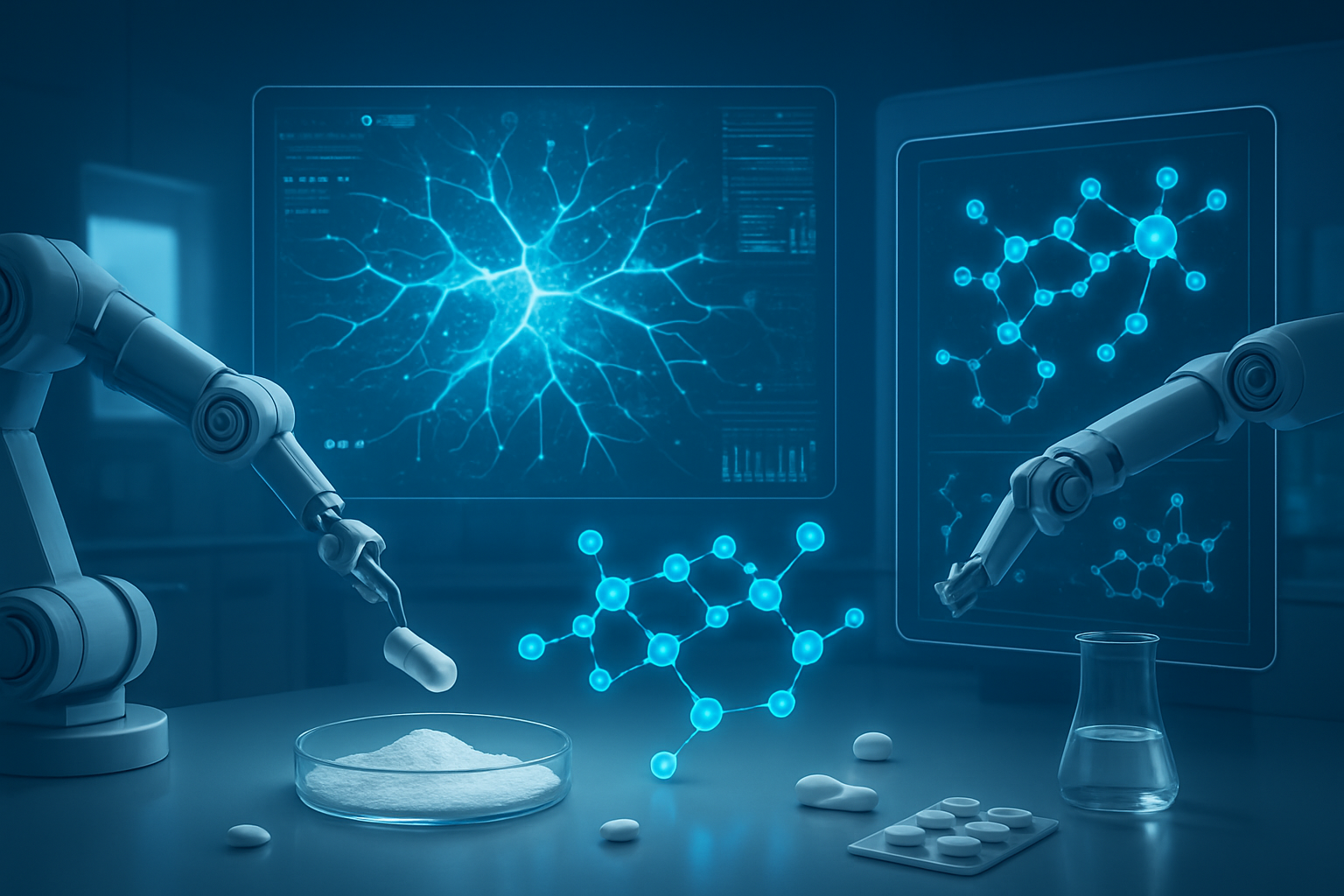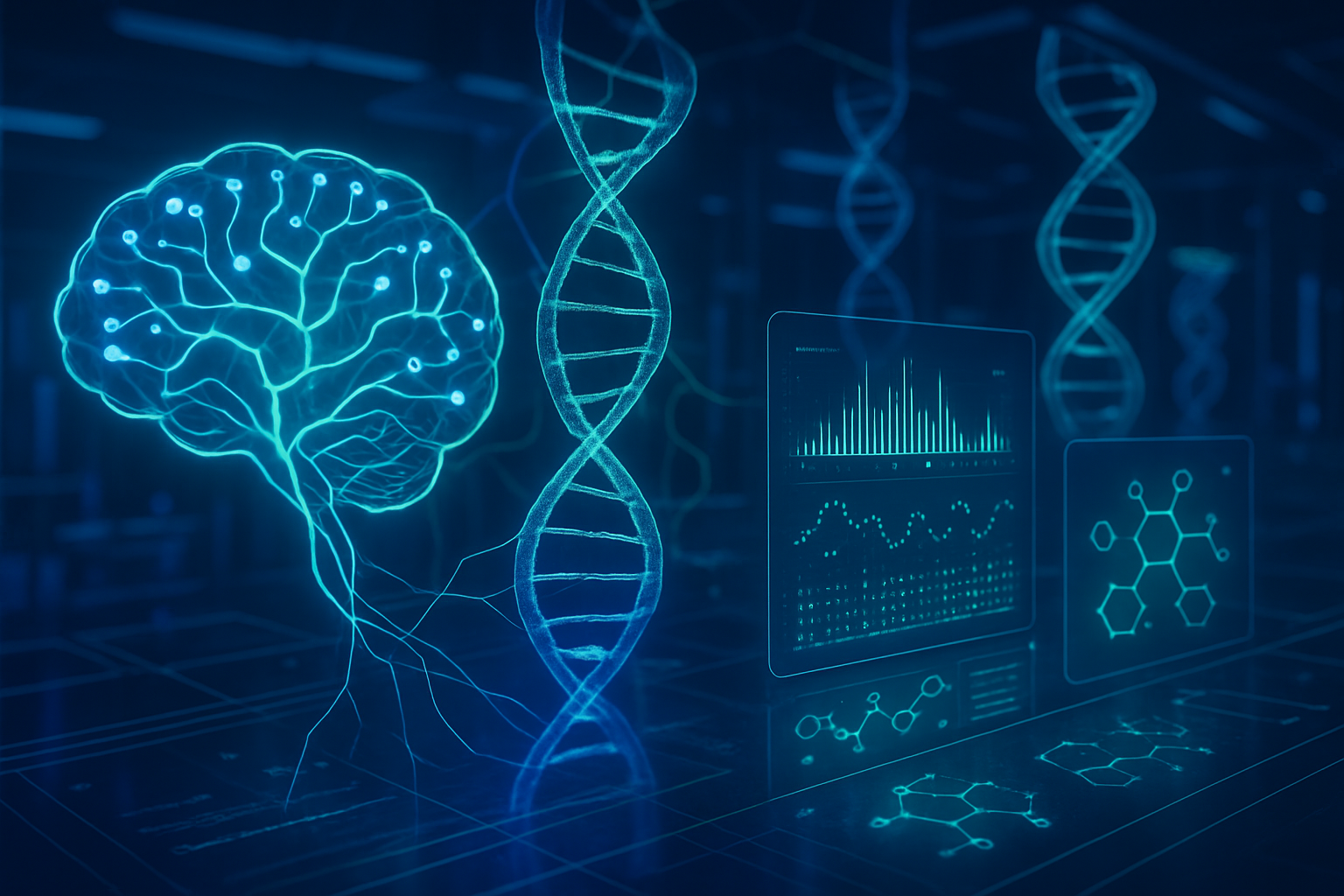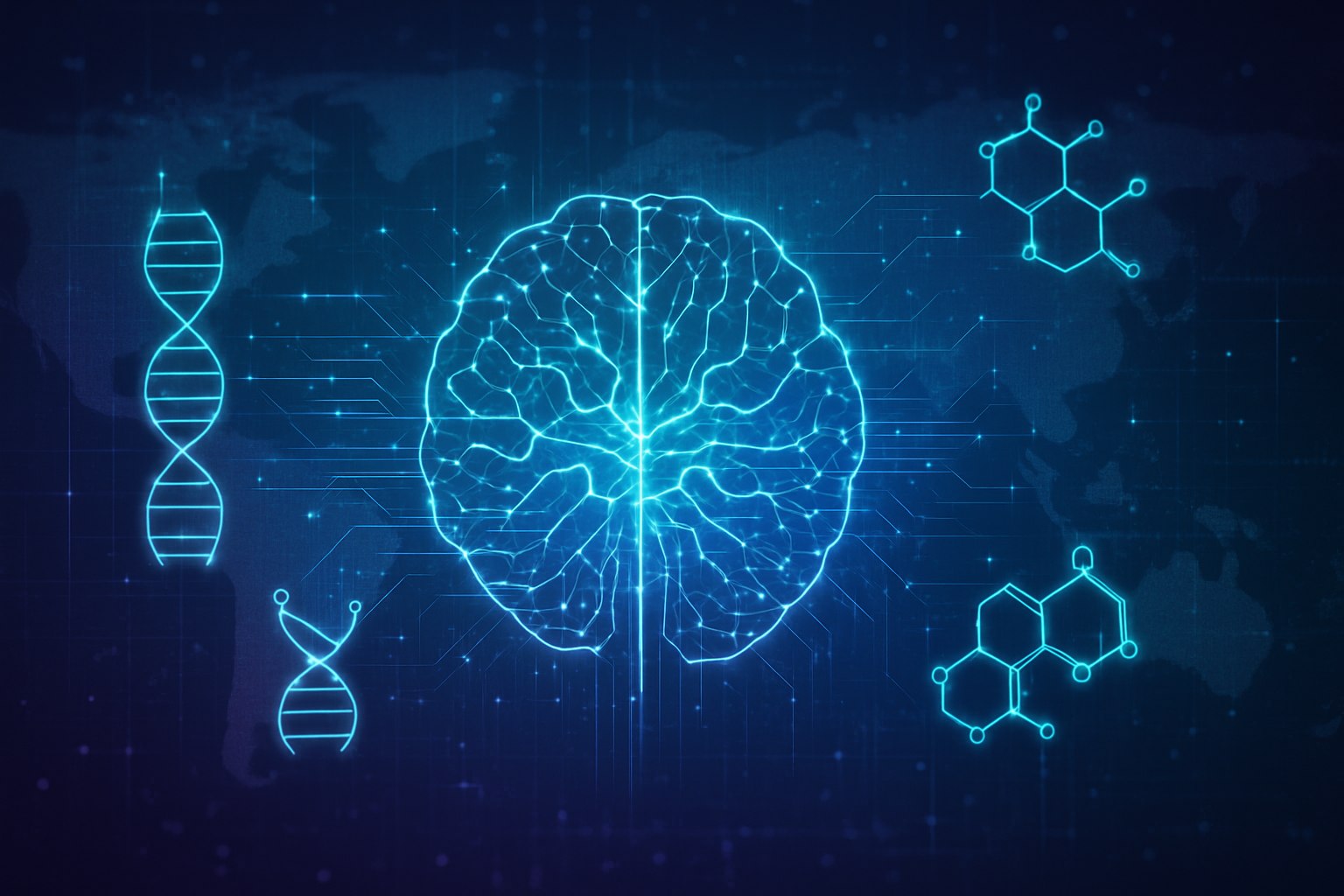The pharmaceutical industry is on the cusp of a profound transformation, driven by the integration of data science and Artificial Intelligence (AI) into drug formulation stability models. This burgeoning field is set to dramatically enhance the shelf-life and effectiveness of medications, addressing long-standing inefficiencies in traditional drug development. By moving beyond time-consuming, empirical trial-and-error methods, AI offers a faster, more accurate, and cost-effective approach to predicting drug stability, solubility, and overall performance. This shift holds immense immediate significance, promising to accelerate the availability of life-saving drugs, reduce development costs, and ultimately lead to improved patient outcomes by ensuring the consistent quality and potency of medicines throughout their lifecycle.
Technical Deep Dive: AI's Precision in Predicting Drug Stability
AI advancements are fundamentally reshaping how drug shelf-life and formulation stability are understood and managed. Traditionally, determining drug stability has been a laborious and prolonged process, often requiring months or even years of real-time and accelerated stability studies. These methods, while critical, are resource-intensive, provide limited environmental scope, and rely heavily on empirical data and extrapolations like the Arrhenius equation, which can miss complex, non-linear degradation patterns, especially prevalent in modern biologics.
Enter AI, particularly machine learning (ML), deep learning (DL), and generative AI, which are revolutionizing this landscape. ML algorithms like Random Forest, Support Vector Regression (SVR), Gradient Boosting, and XGBoost are trained on vast historical stability datasets—encompassing chemical structures, excipient interactions, and storage conditions—to predict future stability outcomes. For instance, tree ensemble regression models have successfully predicted Beyond Use Dates (BUDs) with high accuracy (R² = 0.9761). These models excel at identifying optimal API-excipient combinations and predicting degradation rates under various environmental stressors.
Deep learning, with its multi-layered neural networks, tackles even more complex, non-linear relationships. Artificial Neural Networks (ANNs) model physicochemical properties impacting solubility and stability, while Convolutional Neural Networks (CNNs) analyze image-based or spectroscopic data to monitor changes over time. Recurrent Neural Networks (RNNs) and Long Short-Term Memory (LSTMs) are particularly adept at processing time-series data, making them invaluable for modeling degradation profiles over extended periods. A multilayer perceptron (MLP) has demonstrated the ability to predict the stability profile of drugs like Esomeprazole, precisely determining pH limits for maintaining quality. These deep learning models capture intricate degradation patterns often overlooked by traditional methods, especially for complex biologics.
The overarching capability of predictive modeling, powered by ML/DL, allows for enhanced Accelerated Stability Testing (AST). AI models analyze stress data to simulate real-time, long-term stability curves with superior accuracy, even for complex biologics that do not follow simple kinetics. Generative AI is pushing boundaries further, not just predicting but also designing. It can simulate unknown degradation pathways, generate novel drug molecules with desired stability properties, and optimize formulation profiles for enhanced bioavailability. This differs profoundly from traditional approaches by moving from reactive, empirical testing to proactive, in silico exploration and optimization of vast formulation spaces, ranking thousands of hypothetical formulations before any physical experiment is conducted. Initial reactions from the AI research community and industry experts are overwhelmingly positive, recognizing the transformative potential to accelerate development, enhance accuracy, and foster innovation, while also acknowledging challenges related to data quality, model interpretability, and regulatory acceptance.
Corporate Impact: A New Frontier for Pharma and Tech
The emergence of optimized formulation stability models powered by AI is creating a dynamic competitive landscape, significantly impacting AI companies, tech giants, and innovative startups. Companies that successfully leverage this technology stand to gain substantial strategic advantages.
Specialized AI companies are at the forefront, developing proprietary platforms and offering services that streamline drug development. Firms like Exscientia, Insilico Medicine, Atomwise, Schrödinger, BenevolentAI, and XtalPi are pioneering AI-driven drug design and formulation, creating new revenue streams through platform licensing, consultation, and accelerated drug discovery partnerships. For example, Merck & Co., Inc. (NYSE: MRK) utilizes an AI-powered predictive formulation tool to tackle solubility and stability challenges, shortening its formulation process.
Tech giants, with their vast AI research capabilities and cloud infrastructure, are also making significant inroads. Companies like IBM (NYSE: IBM) with its Watson Health initiative and Microsoft (NASDAQ: MSFT) with Azure AI for Life Sciences, offer scalable cloud-based AI solutions for complex stability modeling and large-scale data management. These giants are forming strategic partnerships with pharmaceutical companies, combining their AI expertise with the pharma sector's extensive datasets and domain knowledge. This allows them to expand into healthcare analytics, personalized medicine, and digital therapeutics, offering comprehensive solutions from discovery to patient care.
Startups are playing a crucial role by bringing agile innovation to specific niches. Companies like Cyclica, DeepMatter, Healx, Unlearn.AI, and NetraMark are developing specialized AI platforms for drug repurposing, real-time stability monitoring, or integrating AI with advanced manufacturing. These agile players can compete with established giants by leveraging advanced computational tools without needing extensive traditional laboratory infrastructure, leveling the playing field.
Major pharmaceutical companies are rapidly adopting AI. Novartis AG (SWX: NOVN) and AstraZeneca plc (LSE: AZN) are exploring AI-enabled digital twin models for process optimization. Roche Holding AG (SWX: ROG) focuses on AI-driven formulation for biologics, while GlaxoSmithKline plc (LSE: GSK) utilizes AI to enhance stability, solubility, and bioavailability. Pfizer (NYSE: PFE) and Sanofi (NYSE: SNY) have partnered with AI firms like Exscientia to integrate AI platforms into their discovery and formulation workflows. This shift disrupts traditional stability testing, significantly reducing development timelines and R&D costs, potentially cutting months or years off the drug development process. Companies that become early adopters and innovation leaders, emphasizing cost-effectiveness, enhanced drug quality, and regulatory compliance through AI, will secure strong market positioning and strategic advantages in this evolving landscape.
Broader Significance: AI's Footprint Across Science and Society
The application of AI in optimizing drug formulation stability models transcends a mere technical upgrade; it represents a significant milestone within the broader AI landscape and holds profound implications for healthcare and society. This development aligns perfectly with the overarching trend of AI becoming a transformative general-purpose technology across scientific research, enabling data-driven decision-making and accelerating discovery in myriad fields.
It fits into the broader trend of machine learning in scientific discovery, where AI analyzes complex datasets to derive insights previously beyond human grasp. This mirrors the shift towards predictive analytics that is permeating drug discovery, clinical trials, and patient response prediction. Furthermore, AI-driven stability models are integral to Industry 4.0 and smart manufacturing initiatives, enabling real-time process monitoring, optimization, and predictive maintenance in pharmaceutical production and supply chains. The emergence of generative AI also hints at a future where AI not only predicts but actively designs optimal formulations and simulates unknown degradation pathways.
The broader impacts are substantial. Economically, AI is projected to generate hundreds of billions of dollars annually for the pharmaceutical sector by reducing development costs, accelerating market entry, and minimizing costly product recalls. For healthcare, this translates to faster access to safer and more effective medications, improved patient outcomes, and enhanced therapeutic efficacy. Scientifically, AI elevates the accuracy and reliability of stability predictions, streamlining development and fostering continuous innovation in drug delivery systems.
However, this transformative power comes with inherent concerns. The success of AI models hinges on the availability of high-quality, extensive datasets, which remains a significant challenge. The "black box" nature of some advanced AI algorithms poses issues for interpretability, complicating regulatory approval and stakeholder trust. Regulatory frameworks are still evolving to accommodate AI/ML tools, necessitating clear guidelines for validation and transparency. Algorithmic bias, if training data reflects historical health inequities, could inadvertently perpetuate disparities. Data privacy and security, given the reliance on sensitive patient information, also raise critical ethical questions.
This breakthrough draws parallels to other celebrated AI milestones. Google DeepMind’s AlphaFold, which revolutionized protein structure prediction, demonstrates AI's capacity to solve complex molecular puzzles. Similarly, AI's application in materials science for designing new materials, in genomics for personalized medicine, and in astronomy for identifying trends in vast datasets, all highlight its unifying power across scientific disciplines. The "hockey-stick-like takeoff" in AI's influence across science, starting around 2015, underscores that AI in drug stability is not an isolated event but part of a larger, systemic shift towards augmenting human discovery and revealing non-obvious solutions across all scientific frontiers.
The Road Ahead: Future Developments and Expert Outlook
The journey of optimized formulation stability models powered by AI is just beginning, with a horizon filled with exciting near-term and long-term developments poised to reshape the pharmaceutical landscape.
In the near term, we can anticipate a significant refinement of Accelerated Stability Testing (AST), where AI models will provide increasingly accurate long-term stability predictions based on minimal experimental data. This will drastically cut down the time and resources needed to determine drug shelf-life and Beyond Use Dates (BUDs). AI will also become more adept at optimizing excipient and API combinations, leading to more stable, soluble, and effective drug formulations from the outset. Early-stage "go/no-go" decisions in formulation and packaging will be made with greater confidence, thanks to AI's predictive power.
Looking further ahead, long-term developments promise even more profound changes. Generative AI is expected to move beyond prediction to proactive design, simulating unknown degradation pathways and impurities before they physically manifest, offering unprecedented foresight. The advent of "digital twins" for drugs and packaging will enable comprehensive, dynamic modeling of storage conditions across diverse geographies and supply chains, ensuring product integrity globally. The integration of Internet of Things (IoT) sensors with Edge AI will facilitate continuous, real-time stability monitoring throughout the supply chain and even during patient use, transforming reactive quality control into a proactive, predictive system. Furthermore, AI's ability to analyze vast datasets, including individual genetic profiles, will be crucial for the advancement of personalized medicine, tailoring drug formulations and delivery systems to individual patient needs for optimal efficacy and safety.
Potential applications on the horizon are vast, ranging from streamlined formulation design and robust risk mitigation to the revitalization of challenging drug candidates that were previously shelved due to stability issues. AI will be instrumental in designing advanced drug delivery systems, such as controlled-release formulations and nanoparticles, by accurately predicting their release profiles and interactions within the body. Crucially, AI-driven models will generate robust predictive data to support regulatory submissions, potentially accelerating drug approvals and aligning with modern Quality-by-Design (QbD) principles.
Despite this immense promise, several challenges remain. The need for high-quality, comprehensive datasets is paramount, as is addressing the "black box" nature of some AI models to ensure interpretability for regulatory bodies. Evolving regulatory frameworks must adapt to accommodate AI/ML tools, requiring clear standards for model validation and transparency. Seamless integration with existing pharmaceutical workflows and addressing ethical considerations like algorithmic bias and data privacy are also critical.
Experts widely predict that AI will transform stability testing from a slow, reactive process into a smart, proactive, and predictive discipline. This will lead to faster product launches, reduced costs, and smarter quality assurance operations. Regulatory bodies are already encouraging the use of AI, signaling a positive outlook for its acceptance. Ultimately, AI is expected to become an indispensable tool for optimizing drug composition and dosage forms, significantly enhancing drug product quality and patient safety.
A New Era for Pharmaceuticals: The AI-Driven Future
The convergence of optimized formulation stability models and Artificial Intelligence marks a pivotal moment in both AI history and pharmaceutical innovation. This is not merely an incremental technological upgrade but a fundamental re-engineering of how pharmaceuticals are developed, manufactured, and maintained, promising a future of safer, more efficient, and universally accessible medicines.
Key takeaways from this transformative shift include AI's unparalleled ability to predict drug degradation, optimize complex formulations, and accelerate stability testing with unprecedented accuracy and speed. This capability, driven by advanced machine learning, deep learning, and generative AI, moves the industry from a laborious, empirical past to a data-driven, proactive future. It signifies AI's growing maturity in tackling highly complex, regulated scientific challenges, mirroring its impact across other scientific disciplines like protein folding and materials science.
The long-term impact is profound: faster access to novel therapies, enhanced drug accessibility and affordability, improved patient outcomes through more stable and effective formulations, and the realization of personalized medicine. AI will fortify global supply chains, ensuring the integrity of drug products and fostering continuous innovation in drug delivery systems. The economic benefits are immense, with projections of hundreds of billions in value for the pharmaceutical sector by reducing costs and accelerating market entry.
In the coming weeks and months, industry watchers should keep a close eye on several critical developments. Expect continued advancements in generative AI, particularly its ability to simulate unknown degradation pathways, offering even greater foresight. The wider implementation of "digital twins" for drugs and packaging, enabling virtual modeling of storage conditions, will become more prevalent. Increased deployment of edge AI combined with IoT sensors for real-time stability monitoring across manufacturing, warehousing, and cold chain logistics will further solidify AI's role in quality assurance. Crucially, watch for evolving guidance and clarification from regulatory bodies on the validation and acceptance of AI-driven stability models, as frameworks adapt to these groundbreaking technologies. Finally, anticipate a growing number of published case studies from pharmaceutical companies, showcasing tangible benefits in terms of reduced development cycles, significant cost savings, and enhanced product quality through strategic AI integration.
The fusion of AI with drug formulation stability is more than just a technological advancement; it is a catalyst for a healthier, more innovative future.
This content is intended for informational purposes only and represents analysis of current AI developments.
TokenRing AI delivers enterprise-grade solutions for multi-agent AI workflow orchestration, AI-powered development tools, and seamless remote collaboration platforms.
For more information, visit https://www.tokenring.ai/.
